Politics
Trump wants NATO to spend 5% on defence. What do Canada party leaders say? – National TenX News
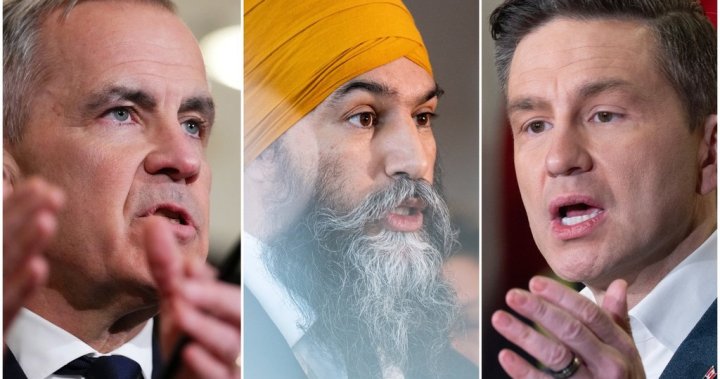
Federal party leaders and candidates in the upcoming election say they are committed to getting Canada to meet NATO’s current defence spending target but are resisting the Trump administration’s call on allies to more than double that commitment.
U.S. President Donald Trump has said he wants NATO members to spend at least five per cent of their GDP on defence, which U.S. Secretary of State Marco Rubio repeated Friday at a meeting of NATO foreign ministers in Brussels.
“I’m not saying overnight,” he told reporters, but “we think that’s what NATO allies need to be spending for NATO to face the threats that itself has identified and articulated.”
“We are as involved in NATO today as we have ever been, and we intend to continue to be. But it has to be a real alliance. And that means that our alliance partners have to increase their own capabilities,” he said.
Asked whether that the U.S. would also match the five per cent target, Rubio said: “Sure. We’re heading there now.”
According to NATO figures, the U.S. was projected to have spent 3.38 per cent of GDP on its military last year, the only ally whose spending has dropped over the last decade.
Trump’s calls have increased pressure on Canada, which is among eight out of 32 NATO members that currently fall short of the two per cent target. It spent 1.37 per cent last year.

Canada’s defence spending is one of several grievances Trump has cited in his calls to make the country a U.S. state — an idea he floated even in front of NATO Secretary-General Mark Rutte in an Oval Office meeting last month.
The White House has called on all NATO allies to hit two per cent by June, when NATO leaders are set to gather for their annual summit, along with commitments to further ratchet up spending after that.
Foreign Affairs Minister Melanie Joly, who’s running for re-election as the Liberal candidate in the Montreal-area riding of Ahuntsic-Cartierville, told reporters in Brussels that Canada is committed to boosting its defence spending.
Yet she added NATO must be aligned in confronting Russia — an apparent reference to Trump’s readiness to strike closer ties with Russian President Vladimir Putin amid NATO’s ongoing support for Ukraine against Russia’s invasion.
“It is important that we all agree that Russia is a threat. If not, I don’t know why we should always increase more and more defence spending,” Canadian Foreign Minister Mélanie Joly told reporters at NATO headquarters in Brussels.
“We all know that we’re living much more in a dangerous world, and in that sense we need to do more. Canada is willing to do more, and we have to do more faster.”
Here’s what federal party leaders have said about boosting Canada’s defence spending and meeting its NATO commitments as Trump’s threats dominate the campaign.
Liberal Leader Mark Carney said shortly after he called the election that a Liberal government would meet the two per cent target before 2030.
Carney has promised to modernize the recruitment process for the Canadian Armed Forces and address a shortage of over 14,000 CAF members. He said he will do that by increasing salaries an unspecified amount, building more on-base housing and improving health and child-care services.

He has also vowed to modernize and accelerate military procurement and prioritize Canadian manufacturing for equipment.

Get daily National news
Get the day’s top news, political, economic, and current affairs headlines, delivered to your inbox once a day.
Those investments will be prioritized toward Arctic security and NORAD modernization.
“We will deliver an unprecedented acceleration of investment in our Armed Forces so that we can defend every inch of our sovereign territory while helping to support and defend our allies abroad,” he said at a defence platform announcement in Halifax on March 25.
Conservative Leader Pierre Poilievre has said a government led by him would ensure Canada meets the two per cent target, but has not set a timeline for when that will happen.
He says the Conservatives would use extra revenues earned through an expanded trade deal with the U.S., negotiated in response to Trump’s tariffs on Canada, to invest in the CAF. Cuts to foreign aid and the public service “bureaucracy” will further free up frontline defence funding, he has said.
“We will hit our two per cent, we will take back control of our Arctic waters from the Chinese and the Russians, we will rebuild our military and become a truly sovereign nation with a strong Armed Forces that can protect us,” Poilievre said at an event in Toronto on April 2.
“We will not do this to please President Trump. We will do it because it is right for Canada, especially in light of America’s growing ambivalence towards NATO. … Canada will carry its own weight.”
Asked Friday about the Trump administration’s call for a five per cent spending commitment, Poilievre told reporters in Trois-Riviere, Que., that “we are going to make our own decisions on exactly how much we spend.”

Before the election was called, NDP Leader Jagmeet Singh said his government would commit to meeting the two per cent target by 2032.
Singh said at an event in Iqaluit on March 16 that the NDP would do that by building 5,000 new affordable homes to end the military housing shortage, raise military wages and prioritize purchasing Canadian-built military equipment.
He added Arctic defence investments must be coupled with investments in northern communities, including infrastructure.
“We cannot separate the two,” he told reporters. “So we have to find the investments to build up the North to be able to defend it, but also to support the communities. We believe those two are deeply connected, and we will find the ways to make those investments.

Singh has not addressed the NDP’s defence platform on the campaign trail so far.
An NDP campaign official speaking on background told Global News that Canada is “not going to do something just because Donald Trump tells us to” when asked about further boosting defence spending to five per cent.
The NDP would look at how to increase that spending in a way that is best for Canadians and is economically feasible, the official said.
The Bloc Quebecois platform calls for Canada to hit the two per cent spending target by the end of this decade, primarily through boosting defence investment in Quebec.
The Green Party’s “Protecting Canada” section of their platform makes one mention of NATO. It says the party wants to “create a common diplomatic and economic front — an economic NATO of sorts — with other like-minded democracies.”
The goal is “to establish red lines and put the U.S. administration and key U.S. economic actors on notice about joint retaliatory economic measures against the U.S. to any further encroachments on the sovereignty of any member of the economic bloc.”
British Prime Minister Keir Starmer announced in February his government would increase defence spending from 2.33 per cent of GDP last year to 2.5 per cent by 2027.
France has set itself an “objective” of between three per cent and 3.5 per cent, “which is about the level of American defence spending,” French Foreign Minister Jean-Noël Barrot told reporters in Brussels on Friday. France was estimated to be spending just over two per cent last year.

The top defence spender in the NATO alliance last year, Poland, allocated 4.12 per cent of its GDP for military spending in 2024.
Norwegian Foreign Minister Espen Barth Eide said NATO members are working on setting a new spending target, to be announced at the next summit in June.
“Just as it’s important to spend more, it’s also important to spend more smartly,” he said, calling Trump’s call for a five per cent target “a very high ambition.”
— With files from the Associated Press
Politics
Trump says he may tariff countries that don’t ‘go along’ with Greenland plans – National TenX News
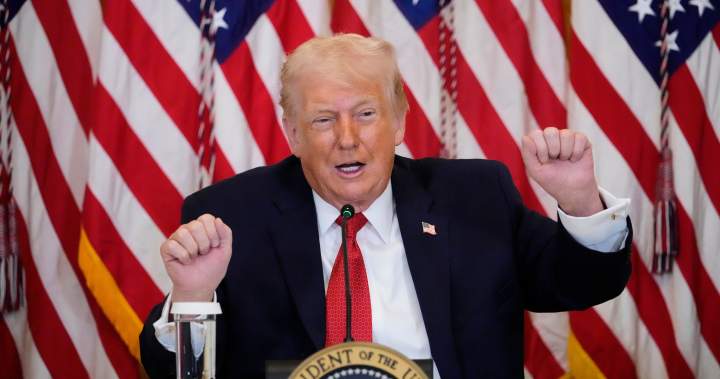
U.S. President Donald Trump suggested Friday that he may punish countries with tariffs if they don’t back the U.S. controlling Greenland, a message that came as a bipartisan Congressional delegation sought to lower tensions in the Danish capital.
Trump for months has insisted that the U.S. should control Greenland, a semiautonomous territory of NATO ally Denmark, and said earlier this week that anything less than the Arctic island being in U.S. hands would be “unacceptable.”
During an unrelated event at the White House about rural health care, he recounted Friday how he had threatened European allies with tariffs on pharmaceuticals.
“I may do that for Greenland too,” Trump said. “I may put a tariff on countries if they don’t go along with Greenland, because we need Greenland for national security. So I may do that,” he said.
He had not previously mentioned using tariffs to try to force the issue.
Earlier this week, the foreign ministers of Denmark and Greenland met in Washington this week with U.S. Vice President JD Vance and Secretary of State Marco Rubio.
That encounter didn’t resolve the deep differences but did produce an agreement to set up a working group — on whose purpose Denmark and the White House then offered sharply diverging public views.
European leaders have insisted that is only for Denmark and Greenland to decide on matters concerning the territory, and Denmark said this week that it was increasing its military presence in Greenland in cooperation with allies.

A relationship ‘we need to nurture’
In Copenhagen, a group of senators and members of the House of Representatives met Friday with Danish and Greenlandic lawmakers, and with leaders including Danish Prime Minister Mette Frederiksen.
Delegation leader Sen. Chris Coons, a Delaware Democrat, thanked the group’s hosts for “225 years of being a good and trusted ally and partner” and said that “we had a strong and robust dialog about how we extend that into the future.”

Get daily National news
Get the day’s top news, political, economic, and current affairs headlines, delivered to your inbox once a day.
Sen. Lisa Murkowski, an Alaska Republican, said after meeting lawmakers that the visit reflected a strong relationship over decades and “it is one that we need to nurture.” She told reporters that “Greenland needs to be viewed as our ally, not as an asset, and I think that’s what you’re hearing with this delegation.”
The tone contrasted with that emanating from the White House. Trump has sought to justify his calls for a U.S. takeover by repeatedly claiming that China and Russia have their own designs on Greenland, which holds vast untapped reserves of critical minerals. The White House hasn’t ruled out taking the territory by force.
“We have heard so many lies, to be honest and so much exaggeration on the threats towards Greenland,” said Aaja Chemnitz, a Greenlandic politician and member of the Danish parliament who took part in Friday’s meetings. “And mostly, I would say the threats that we’re seeing right now is from the U.S. side.”
Murkowski emphasized the role of Congress in spending and in conveying messages from constituents.
“I think it is important to underscore that when you ask the American people whether or not they think it is a good idea for the United States to acquire Greenland, the vast majority, some 75%, will say, we do not think that that is a good idea,” she said.
Along with Sen. Jeanne Shaheen, a New Hampshire Democrat, Murkowski has introduced bipartisan legislation that would prohibit the use of U.S. Defense or State department funds to annex or take control of Greenland or the sovereign territory of any NATO member state without that ally’s consent or authorization from the North Atlantic Council.

Inuit council slams White House
The dispute is looming large in the lives of Greenlanders. Greenland’s prime minister, Jens-Frederik Nielsen, said on Tuesday that “if we have to choose between the United States and Denmark here and now, we choose Denmark. We choose NATO. We choose the Kingdom of Denmark. We choose the EU.””
The chair of the Nuuk, Greenland-based Inuit Circumpolar Council, which represents around 180,000 Inuit from Alaska, Canada, Greenland, and Russia’s Chukotka region on international issues, said persistent statements from the White House that the U.S. must own Greenland offer “a clear picture of how the US administration views the people of Greenland, how the U.S. administration views Indigenous peoples, and peoples that are few in numbers.”
Sara Olsvig told The Associated Press in Nuuk that the issue is “how one of the biggest powers in the world views other peoples that are less powerful than them. And that really is concerning.”
Indigenous Inuit in Greenland do not want to be colonized again, she said.
© 2026 The Canadian Press
Politics
Trump gifted Nobel Peace Prize by Venezuela’s María Corina Machado – National TenX News

Venezuelan opposition leader María Corina Machado said she presented her Nobel Peace Prize medal to President Donald Trump at the White House on Thursday even as he has questioned her credibility to take over her country after the U.S. ousted then-President Nicolás Maduro.
The Nobel Institute has said Machado could not give her prize to Trump, an honour that he has coveted. Even if the gesture proves to be purely symbolic, it was extraordinary given that Trump has effectively sidelined Machado, who has long been the face of resistance in Venezuela. He has signalled his willingness to work with acting President Delcy Rodríguez, who had been Maduro’s second in command.
“I presented the president of the United States the medal, the Nobel Peace Prize,” Machado told reporters after leaving the White House and heading to Capitol Hill. She said she had done so “as a recognition for his unique commitment with our freedom.”
Trump confirmed later on social media that Machado had left the medal for him to keep, and he said it was an honour to meet her.
“She is a wonderful woman who has been through so much. María presented me with her Nobel Peace Prize for the work I have done,” Trump said in his post. “Such a wonderful gesture of mutual respect. Thank you María!”
The White House later posted a photo of Machado standing next to Trump in the Oval Office as he holds the medal in a large frame. A text in the frame reads, “Presented as a personal symbol of gratitude on behalf of the Venezuelan people in recognition of President Trump’s principled and decisive action to secure a free Venezuela.”
Trump has raised doubts about his stated commitment to backing democratic rule in Venezuela, giving no timetable on when elections might be held. Machado indicated that he had provided few specifics on that front during their discussion.

Get breaking National news
For news impacting Canada and around the world, sign up for breaking news alerts delivered directly to you when they happen.
She did not provide more information on what was said.
‘We can count on President Trump’
After the closed-door meeting, Machado greeted dozens of cheering supporters waiting for her near the White House gates, stopping to hug many.
“We can count on President Trump,” she told them without elaborating, prompting some to briefly chant, “Thank you, Trump.”
Before her visit to Washington, Machado had not been seen in public since she travelled last month to Norway, where her daughter received the peace prize on her behalf. She had spent 11 months in hiding in Venezuela before she appeared in Norway after the ceremony.
The jubilant scene after her meeting with Trump stood in contrast to political realities in Venezuela. Rodríguez remains in charge of day-to-day government operations, along with others in Maduro’s inner circle. In her first state of the union speech Thursday, the interim president promoted the resumption of diplomatic ties between the historic adversaries and advocated for opening the state-run oil industry to more foreign investment after Trump pledged to seize control of Venezuelan crude sales.

Trump has said it would be difficult for Machado to lead because she “doesn’t have the support within or the respect within the country.” Her party is widely believed to have won 2024 elections rejected by Maduro.
White House press secretary Karoline Leavitt called Machado “a remarkable and brave voice” but also said the meeting didn’t mean Trump’s opinion of her changed, calling it “a realistic assessment.”
Leavitt told reporters that Trump supported new Venezuelan elections “when the time is right” but did not say when he thought that might be.
A ‘frank and positive discussion’ about Venezuela
Leavitt said Machado had sought the face-to-face meeting without setting expectations for what would occur. She spent about two and a half hours at the White House.
“I don’t think he needs to hear anything from Ms. Machado,” the press secretary said while the meeting was still going on, other than to have a ”frank and positive discussion about what’s taking place in Venezuela.”
After leaving the White House, Machado went on to a closed-door meeting with a bipartisan group of senators.
Sen. Chris Murphy, D-Conn., said Machado told them that “if there’s not some progress, real progress towards a transition in power, and/or elections in the next several months, we should all be worried.”
“She reminded us that Delcy Rodríguez is, in many ways, worse than Maduro,” he added.
Asked if Machado had heard any commitment from the White House on holding elections in Venezuela, Murphy said, “No, I don’t think she got any commitment from them.”

Sen. Bernie Moreno, an Ohio Republican, was exultant following the meeting, saying Machado “delivered a message that loud and clear: What President Trump did was the most important, significant event in Latin America. That getting rid of Maduro was absolutely essential.”
Machado’s Washington stop coincided with U.S. forces in the Caribbean Sea seizing another sanctioned oil tanker that the Trump administration says had ties to Venezuela. It is part of a broader U.S. effort to take control of the South American country’s oil after U.S. forces captured Maduro and his wife less than two weeks ago at a heavily guarded compound in the Venezuelan capital of Caracas and brought them to New York to stand trial on drug trafficking charges.
Leavitt said Venezuela’s interim authorities have been fully cooperating with the Trump administration and noted that Rodríguez’s government said it planned to release more prisoners detained under Maduro. Among those released were five Americans this week.
Trump said Wednesday that he had a “great conversation” with Rodríguez, their first since Maduro was ousted.
Machado doesn’t get the nod from Trump
Just hours after Maduro’s capture, Trump said of Machado that “it would be very tough for her to be the leader.” Machado had steered a careful course to avoid offending Trump, notably after winning the peace prize, and had sought to cultivate relationships with him and key administration voices like Secretary of State Marco Rubio.
The industrial engineer and daughter of a steel magnate, Machado began challenging the ruling party in 2004, when the nongovernmental organization she co-founded, Súmate, promoted a referendum to recall then-President Hugo Chávez. The initiative failed, and Machado and other Súmate executives were charged with conspiracy.
A year later, she drew the anger of Chávez and his allies again for travelling to Washington to meet President George W. Bush, whom Chávez considered an adversary.
Almost two decades later, she marshalled millions of Venezuelans to reject Chávez’s successor, Maduro, for another term in the 2024 election. But ruling party-loyal electoral authorities declared him the winner despite ample credible evidence to the contrary. Ensuing anti-government protests ended in a brutal crackdown.
Politics
IMF chief backs Jerome Powell, U.S. Fed independence amid Trump pressure – National TenX News
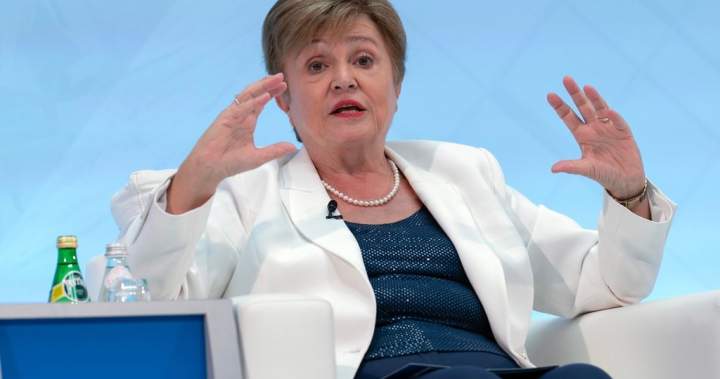
International Monetary Fund chief Kristalina Georgieva on Thursday underscored the importance of keeping central banks independent and threw her support behind beleaguered Federal Reserve Chair Jerome Powell, who is facing a Trump administration investigation for renovation cost overruns.
Georgieva told Reuters in an interview that there was ample evidence that central bank independence worked in the interest of businesses and households, and that evidence-based, data-based decision-making is good for the economy.
The IMF managing director said she had worked with Powell and respected his professionalism.
“I have worked with Jay Powell. He is a very good professional, very decent man, and I think that his standing among his colleagues tells the story,” she said, when asked about a letter of support signed by her predecessor, Christine Lagarde, now head of the European Central Bank, and other large central banks.
Powell on Sunday disclosed that the Trump administration had opened an investigation into him over cost overruns for a $2.5 billion project to renovate two historical buildings at the Fed’s Washington headquarters complex.

Get daily National news
Get the day’s top news, political, economic, and current affairs headlines, delivered to your inbox once a day.
Powell denies wrongdoing and has called the unprecedented actions a pretext to put pressure on him for not bowing to U.S. President Donald Trump’s long-running demands for sharply lower interest rates.

The probe has sparked widespread criticism from some key members of Trump’s Republican Party in the U.S. Senate, which must confirm his nominee to succeed Powell, along with foreign economic officials, investors and former U.S. government officials from both political parties.
Trump has repeatedly derided Powell’s leadership of the Fed and attacked him, often personally, over what he sees as the Fed chair’s slow moves to cut interest rates. On Wednesday, he dismissed concerns that eroding central bank independence would undermine the value of the U.S. dollar and spark inflation, telling Reuters, “I don’t care.”
Georgieva said the IMF looked carefully at issues such as monetary and financial stability, as well as the strength of a country’s institutions. It was specifically interested in the Fed, given the role of the U.S. dollar as a reserve currency.
“It would be very good to see that there is a recognition … that the Fed is precious for the Americans. It is very important for the rest of the world,” she said.
Trump has also attempted to fire another Fed official, Governor Lisa Cook, who has challenged her termination in a legal case that will be argued before the Supreme Court next week.
-

 Fashion10 months ago
Fashion10 months agoThese ’90s fashion trends are making a comeback in 2017
-

 Entertainment10 months ago
Entertainment10 months agoThe final 6 ‘Game of Thrones’ episodes might feel like a full season
-

 TenX Exclusive10 months ago
TenX Exclusive10 months agoअमर योद्धा: राइफलमैन जसवंत सिंह रावत की वीरगाथा
-
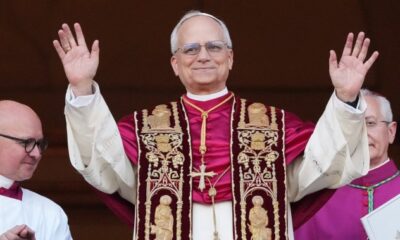
 Politics8 months ago
Politics8 months agoBefore being named Pope Leo XIV, he was Cardinal Robert Prevost. Who is he? – National TenX News
-

 Politics9 months ago
Politics9 months agoPuerto Rico faces island-wide blackout, sparking anger from officials – National TenX News
-

 Fashion10 months ago
Fashion10 months agoAccording to Dior Couture, this taboo fashion accessory is back
-

 Tech10 months ago
Tech10 months agoIndian-AI-software-which-caught-30-thousand-criminals-and-busted-18-terrorist-modules-its-demand-is-increasing-in-foreign-countries-also – News18 हिंदी
-

 Politics9 months ago
Politics9 months agoScientists detect possible signs of life on another planet — but it’s not aliens – National TenX News
